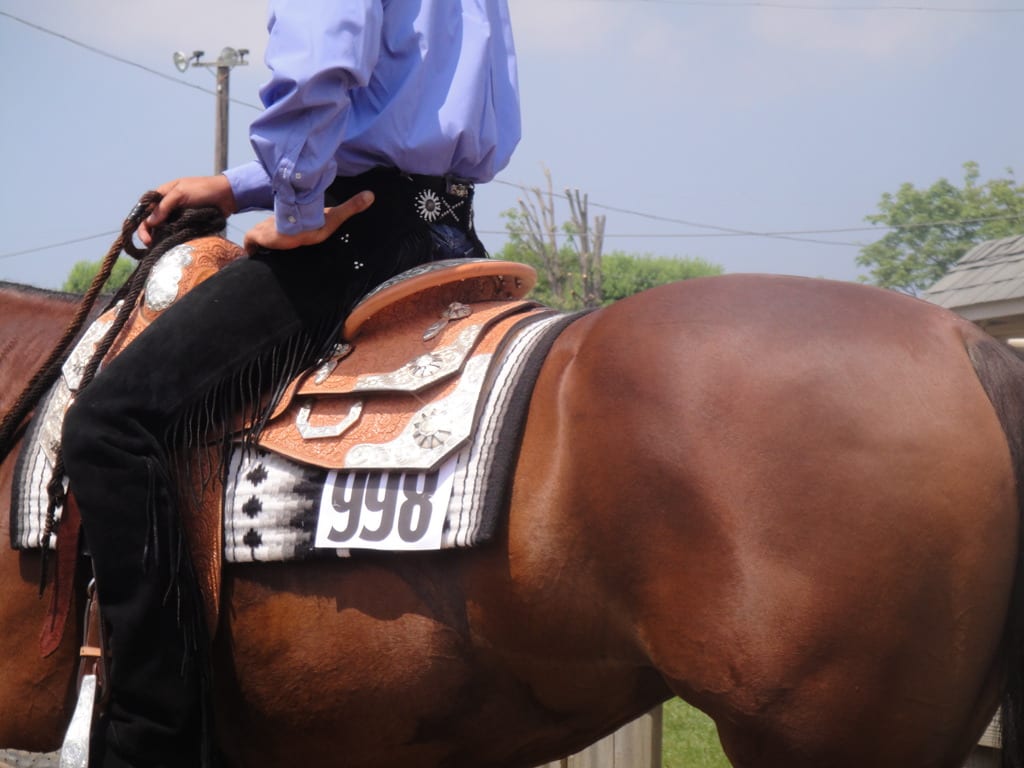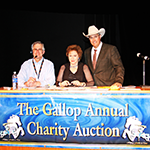For the second year, a nationwide series of more than 160 gastroscopy events showed 60 percent of horses were identified with stomach ulcers.1
“This is the second year that these scopings were able to show horse owners the type of potentially painful stomach ulcers that their horses have been dealing with,” says April Knudson, DVM, manager, Merial Veterinary Services. “Many times, horses are suffering in silence from stomach ulcers due to their natural tendencies as a prey animal to mask pain. In talking to many of these owners myself, they are frequently surprised to find out their horse had been suffering from stomach ulcers, but the evidence is clear.”
At these events, veterinarians evaluated the horses’ stomachs using gastroscopy, which is the only definitive way to determine if a horse has ulcers, Dr. Knudson says.
Throughout the year, 1,532 horses across the country participated in events. Overall, 922 horses from 37 states had some ulceration as identified by gastroscopy. Horses of varying ages and disciplines were found to have all grades of stomach ulcers, including:1
- Horses from 2 months to 30 years of age
- 610 horses, or 40 percent, were Grade 0 (healthy, nonulcerated stomach)
- 471 horses, or 31 percent, were Grade 1 (mild ulcers, with small lesions or damaged tissue)
- 319, or 21 percent, were Grade 2 (moderate ulcers with large lesions)
- 132, or 9 percent, were Grade 3 (extensive lesions with deep ulceration and bleeding)
- 86 percent of racing horses had some grade of ulcers (226 total participating)
- 59 percent of eventing horses (113 total participating)
- 59 percent of hunter jumpers (168 total participating)
- 52 percent of barrel racing horses (122 total participating)
- 48 percent of dressage (107 total participating)
There are many triggers for stomach ulcer development, and stress is an important factor, Dr. Knudson says.
Horses are especially sensitive and may experience stress when exposed to situations you would think of as normal, including competition, training, travel, lay-up due to sickness or injury, shows or events, limited turnout or grazing, or trailering.2,3
Ulcers can develop quickly, too. One study showed that horses can develop stomach ulcers in as little as five days.4
“For competitive horse owners, it’s important to think about preventing stomach ulcers, because stomach ulcers can diminish the hard work, training and commitment both horse and rider worked hard to achieve,” Dr. Knudson notes. “Before a complete gastroscopy and treatment regimen is needed, it can pay to help prevent stomach ulcers before they start.”
Before using any products for stomach ulcers, Dr. Knudson recommends only trusting those that are FDA-approved to work safely and effectively.
For those 60 percent of horses diagnosed with ulcers, Dr. Knudson recommends a course of GASTROGARD® (omeprazole) to treat those ulcers. GASTROGARD is the only FDA-approved product to treat and heal stomach ulcers.5 However, stomach ulcers can still return even after completion of a successful treatment program, if horses are exposed to stressful situations again.
Preventing stomach ulcers before they start is more cost-effective, Dr. Knudson notes. She recommends using ULCERGARD® (omeprazole) during times of stress, which is the only FDA-approved, proven preventive for stomach ulcers.6
“Even with topnotch care and regular veterinary visits, many horse owners don’t like to think that stomach ulcers may develop in their horses,” Dr. Knudson says. “But, the results of these scopings confirm what university studies have found previously: horses of all competitive disciplines are at risk for stomach ulcers.”
Merial is a world-leading, innovation-driven animal health company, providing a comprehensive range of products to enhance the health, well-being and performance of a wide range of animals. Merial employs approximately 5,700 people and operates in more than 150 countries worldwide. Its 2009 sales were $2.7 billion. Merial is the Animal Health subsidiary of sanofi-aventis. For more information, please see www.merial.com.
IMPORTANT SAFETY INFORMATION:
Caution: The safety of GASTROGARD in pregnant or lactating mares has not been determined.
ULCERGARD can be used in horses that weigh at least 600 pounds. Safety in pregnant mares has not been determined.
###
1Data on file at Merial.
2ULCERGARD product label.
3Murray MJ. Disorders of the stomach. In: Smith BP, ed. Large Animal Internal Medicine. St. Louis; CV Mosby, 1990:710-717.
4McClure SR, Carithers DS, Gross SJ, Murray MJ. Gastric ulcer development in horses in a simulated show or training
environment. J Am Vet Med Assoc 2005;227(5):775-777.
5GASTROGARD Oral Paste product label.
Oral Paste.









